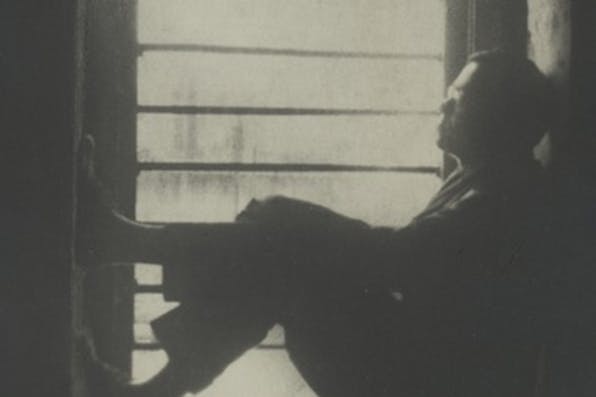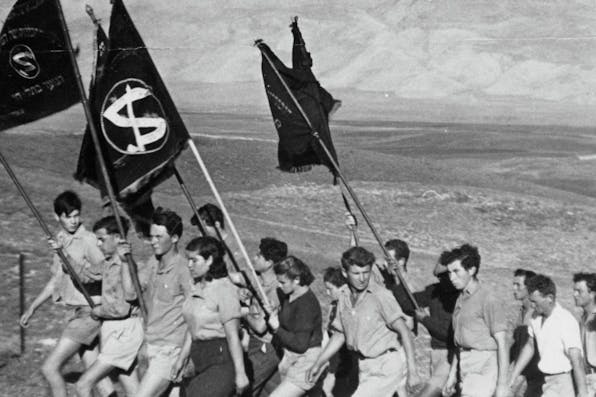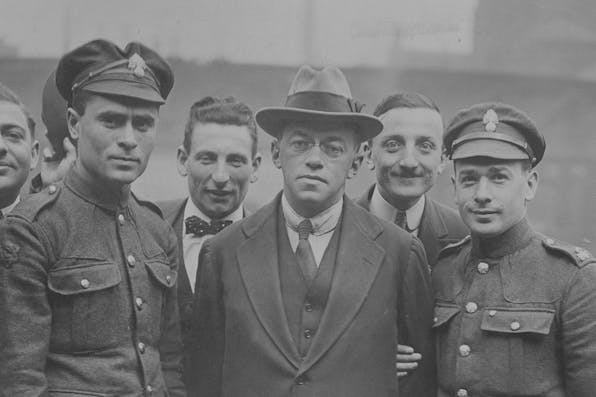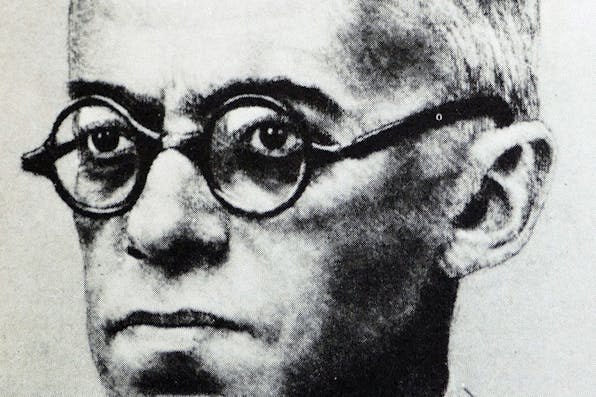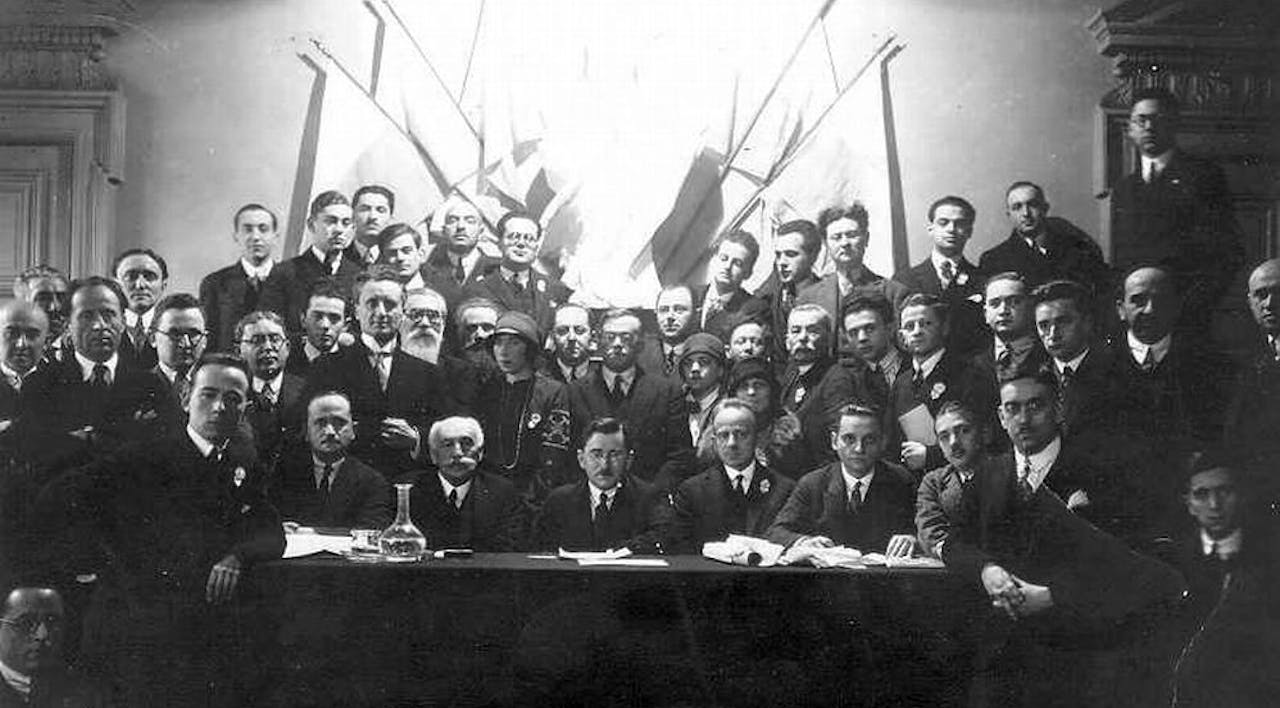
August 2021
The Jabotinsky Paradox
How could the man who at one point openly scorned religion also be the forefather of the political coalition that ensured for it a key place in Israeli life?
In 1919, a fierce debate broke out among the Jews of the Land of Israel, much like the one raging in the U.S. at the same time, over the question of whether women should be allowed to vote in the emerging institutions of Jewish self-government. The debate pitted secular Jews against the Orthodox, and especially members of the staunchly traditionalist Old Yishuv, so called because it had been established before the Zionist pioneers began to arrive in the 1880s. Despite his reputation as a moderate, Abraham Isaac ha-Kohen Kook, the chief rabbi of Jerusalem—and soon thereafter of Palestine—came out against women’s suffrage. Vladimir Jabotinsky, a prominent anti-socialist Zionist who in 1925 would found the right-wing Revisionist movement (the precursor of today’s Likud), was incensed. To him, Rabbi Kook and his supporters were ignoramuses “who came out of a hole in the wall . . . and never heard the name of John Stuart Mill.”
Such harsh rhetoric was typical of Jabotinsky at the time. A secular Jew himself, he saw modern Jewish nationalism as part of a Western secular revolution, and he aspired to create a Jewish state on a classical-liberal model, with religion having no official role in government. In his mind the attachment of many Jews to their religious practices was a symptom of their backwardness.
But fifteen years later, in 1934, he wrote the following about Kook, with whom he had by this time become personally acquainted:
